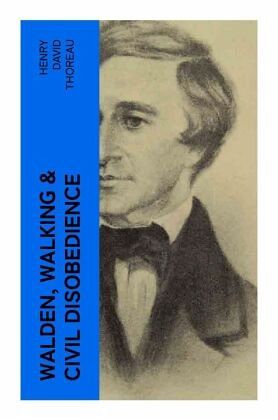
Walden, Walking & Civil Disobedience
3 Thoreau Classics
Versandkostenfrei!
Versandfertig in 6-10 Tagen
13,50 €
inkl. MwSt.
Weitere Ausgaben:

PAYBACK Punkte
0 °P sammeln!
In "Walden, Walking & Civil Disobedience," Henry David Thoreau intricately weaves together his reflections on nature, society, and the individual's relationship to government, embodying the transcendentalist philosophy that shaped 19th-century American thought. Spanning themes of simplicity, solitude, and ethical living, Thoreau documents his experiment in real-life minimalism at Walden Pond, employing a lyrical yet incisive prose style that invites introspection. The essays challenge readers to reconsider their own lives in the context of societal expectations, encouraging a deeper connection...
In "Walden, Walking & Civil Disobedience," Henry David Thoreau intricately weaves together his reflections on nature, society, and the individual's relationship to government, embodying the transcendentalist philosophy that shaped 19th-century American thought. Spanning themes of simplicity, solitude, and ethical living, Thoreau documents his experiment in real-life minimalism at Walden Pond, employing a lyrical yet incisive prose style that invites introspection. The essays challenge readers to reconsider their own lives in the context of societal expectations, encouraging a deeper connection to the natural world and advocating for civil disobedience against unjust laws. Thoreau, a keen observer of nature and a vocal critic of contemporary society, was profoundly influenced by the landscapes of New England and the political climate surrounding the Mexican-American War. His belief in the importance of individual conscience and integrity propelled him to champion social justice and ecological awareness. Living in a cabin for two years, he drew from personal experience, exemplifying his ideals through both action and narrative, laying a philosophical groundwork that resonates to this day. This timeless collection is essential for readers who seek to understand the roots of environmentalism and social change, as well as those interested in the philosophical underpinnings of individualism. Thoreau's poignant insights into the human spirit and ethical action invite a reflective engagement with both nature and society, making it a must-read for anyone committed to living a thoughtful and purposeful life.













